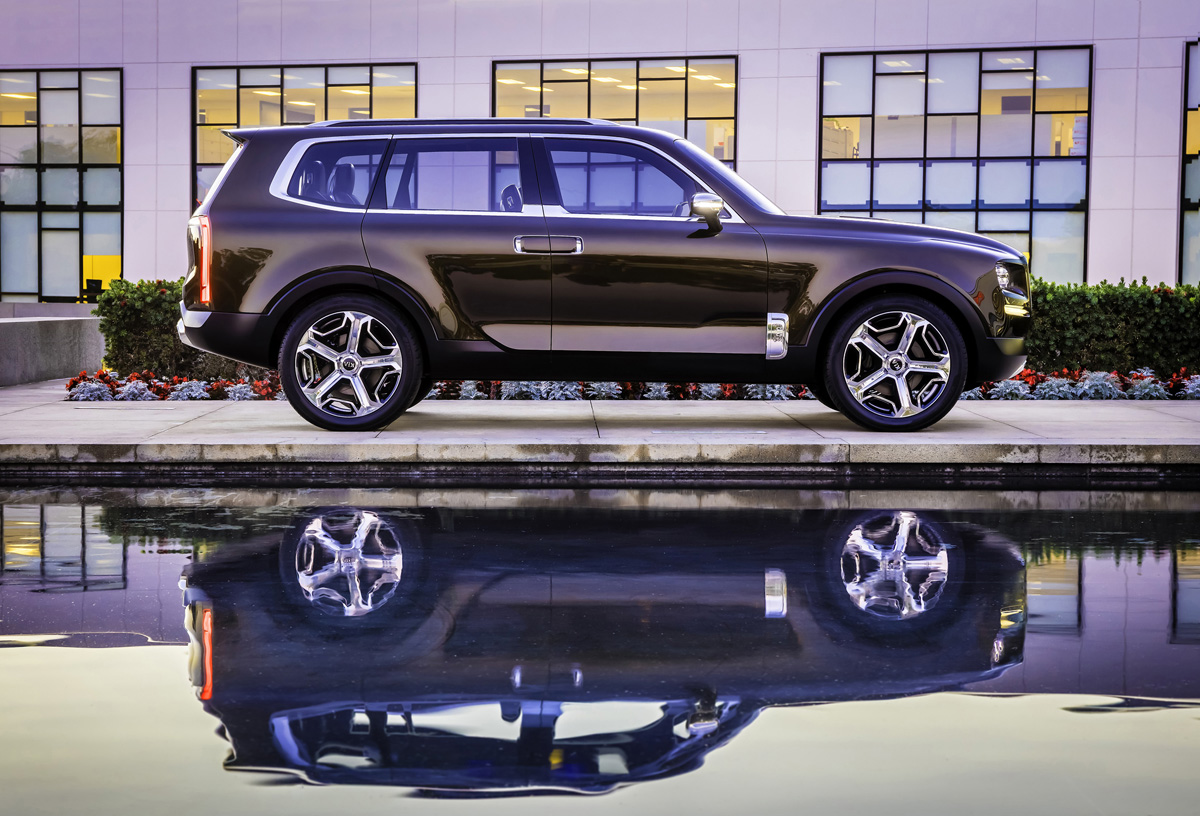While auto companies have been implementing 3D printing for prototyping purposes for some time, its use for creating end parts will be increasingly adopted by industries across the board. That day is slowly dawning, as more firms attempt to find components that can be 3D printed for their car models. Often times, this is limited to non-critical parts, often framing the use of 3D printing as more of a marketing tool than a useful technology. That seems to be the case in Kia’s latest concept car, the Kia Telluride, being presented at the North American International Auto Show (NAIAS).

Other features include the massive size of the thing and LED lights for the headlamps and indicatore lights, as well as a PHEV powertrain, a 3.5-liter gasoline direct injected (GDI) V6 engine, and an electric motor, allowing it to achieve 30 mpg on the highway and produce 270 horsepower from the V6 and 130 from the electric motor.

Finally, 3D printing comes into play in the Telluride’s dashboard, door panels, and steering wheel, making this the first use of 3D printing for end parts by Kia. The company has not yet explained the purpose of 3D printing these components – whether it allowed for lighter weight parts or unique shapes, etc. – but only say that they “add a distinct, modern design element” to the auto. I’ve reached out to the company for more details and will hopefully be able to update this article after I hear back.
Not sure about you, but it’s hard to think of the Telluride as being that cutting edge when it still runs partially on gas and has a 3D printed steering wheel, but I can easily say that Kia’s description of the SUV concept as “anything but a utopian fantasy” is definitely untrue. Maybe I’m just bummed that David Bowie is dead. Still, 30 mpg and carrying seven people seems like nothing when Buckminster Fuller’s Dymaxion Car was able to get 30 mpg in 1933 and he was designing, not for profit, but to meet the needs of ever person on Earth.
Update 1/12/2015: Kia’s Scott McKee has given me a bit more input as to why they chose 3D printing to produce pieces of the dashboard, center console, and steering wheel. In addition to the “futuristic design” of the Telluride – what would be KIA’s first full-sized SUV – 3D printing was used because the vehicle was a one-off SUV, allowing the KIA team to test out designs without the need for tooling, etc.




